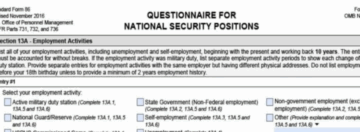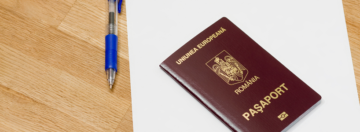TSA: Mule Drivers Need Security Clearances
Score one for the bureaucracy: Mule drivers at an eastern Pennsylvania historical park need the same federal security clearance as port workers. The Homeland Security Department has refused to grant an exemption to workers who operate a mule-pulled boat at the National Canal Museum in Easton.
This excerpt from a March 24, 2008 Associated Press article appearing in a number of Pennsylvania newspapers including the York Daily Record went on to report that each of the 4 mule drivers at the small museum will be required to have a Transportation Worker Identification Credential. The cost of processing these credentials will be $420, and the museum may have to increase their price for a canal ride.
These are not the same as the security clearances discussed on this blog, but the price of the identification credential appears to be equal to the cost of 4 NACIs (National Agency Check with Inquiries), the type of investigation needed for Personal Identity Verification Cards issued in compliance with Homeland Security Presidential Directive 12 (HSPD-12).
Scientist at NASA’s Jet Propulsion Laboratory obtained a court injunction against the HSPD-12 background investigation requirement on the grounds that it is an unconstitutional violation of their privacy, but not so for mule drivers at a museum.



Comment Archive
The problem of “clearance inflation” is a persistent one. We’ve represented cleaning ladies of limited cognitive abilities who needed top secret clearances because of whose floors they mopped (fair enough, I suppose, except when one has a fit because her mop is missing, is that reason to strip her of her clearance and job?) and a host of folks who actually had no need or even ability to access any secret information but had jobs at sites where access required secret clearances. We have a case right now involving a research scientist who studies sunspots’ effects on weather as part of an international team, including PRC citizens, who needs a clearance to go to the same place the PRC citizens can get to without the clearance because they are foreign nationals participating in the international effort. Because he’s a U.S. citizen he cannot go there unless he has a clearance. DOHA takes the position that “cleared is cleared” and it’s not for them to look at whether there actually is any secret information at risk. The result is, IMHO, unnecessary work by an overworked group who is trying to keep up with a massive caseload. There needs to be more rationality in the decisionmaking process to determine when clearances should actually be required. The would reduce the caseload and improve the focus of effort on cases where secured information actually is at risk.